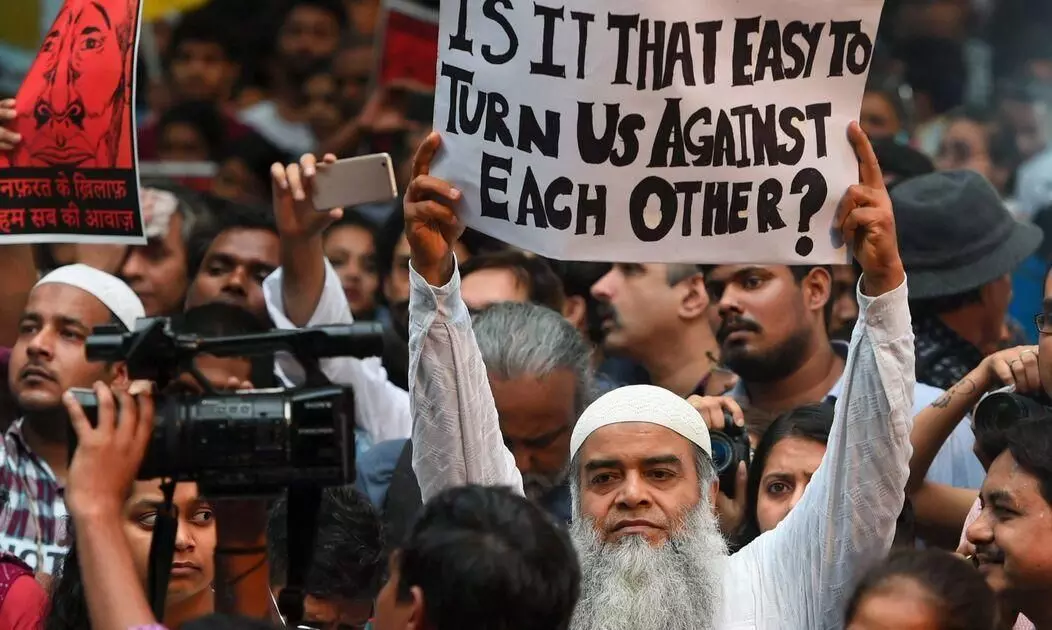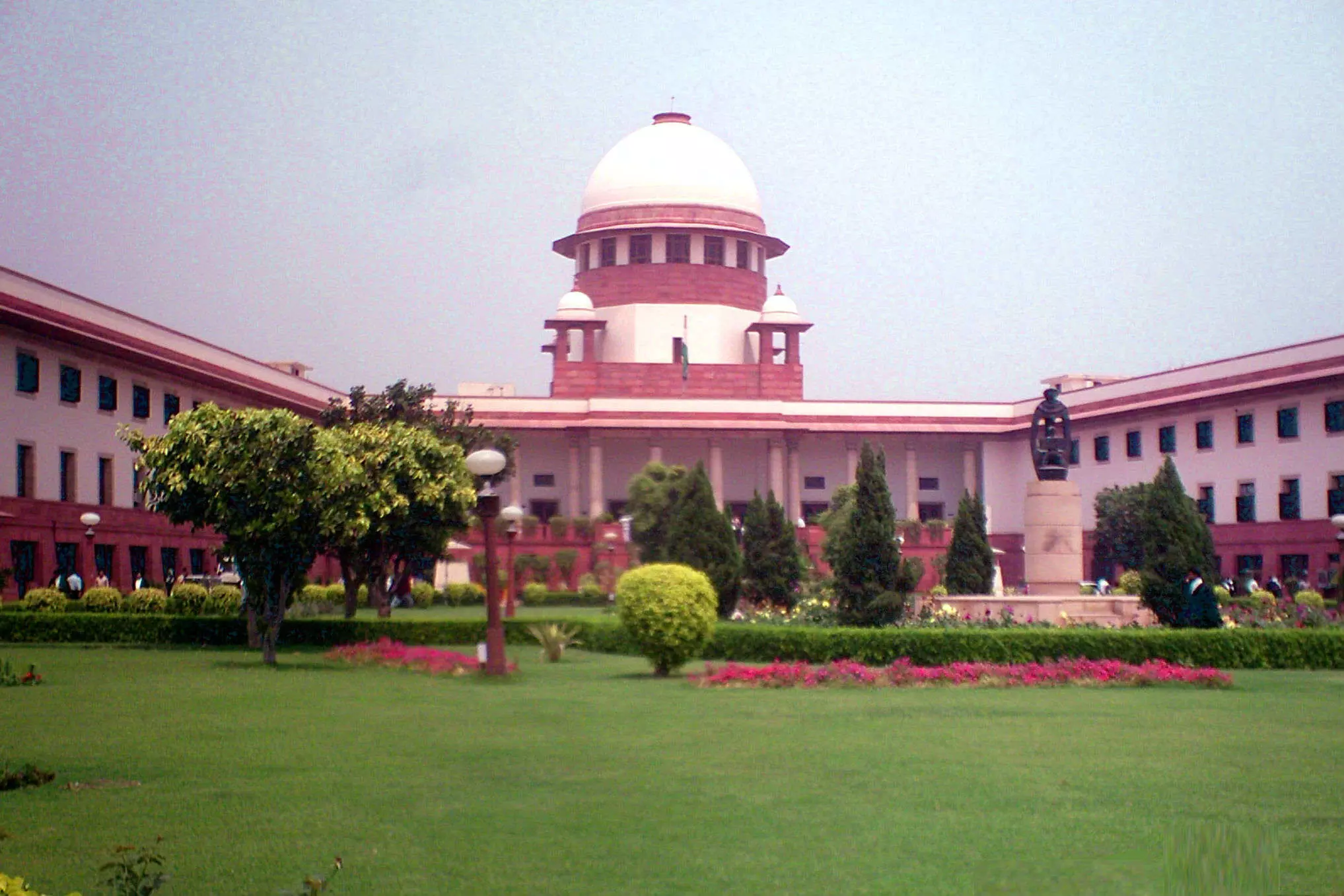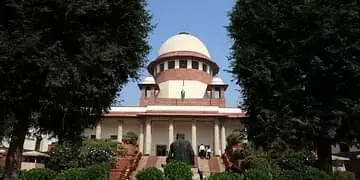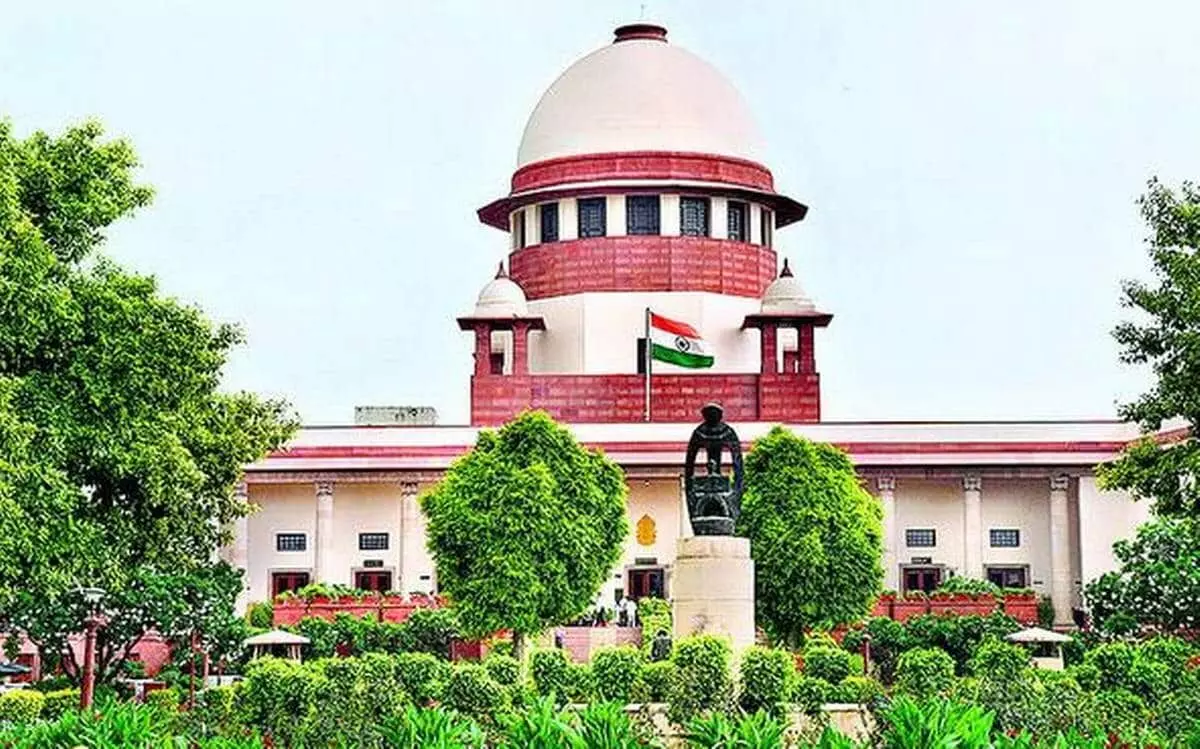
Hate crimes: a judicial commission needed
text_fieldsPTI Photo.
The Supreme Court is strongly intervening in the complaints that central and state governments are failing to prevent hate crimes. The action was taken in a petition filed by Shaheen Abdullah requesting the Supreme Court to issue a directive to prevent crimes. The bench of Justice KM Joseph and Justice Hrishikesh Roy asked the police chiefs of Delhi, Uttar Pradesh and Uttarakhand to explain what action was taken against those who delivered hate speech. Authorities have a duty to prevent hate crimes regardless of religion. Even if no complaint is received, the police should file a case suo motu. The court warned that contempt of court action would be taken against those who failed to do so. The international community also shares the concern that the Indian government is inactive in preventing communal hatred. The United Nations Secretary-General Antonio Guterres demanded the other day that India must openly condemn hate propaganda. For India's voice as a member of the UN Human Rights Council to be authentic and credible, human rights must be protected within the country as well.
What makes the country's plight worse is that the inaction of the rulers in stopping hate propaganda and violence. Often they are complicit in sectarian violence through silence and inaction. The crux of the problem is that those who spread racial hatred are connected to the governments, and even those at the top of the administration are not ready to stop, punish or even condemn them. The revelation that the recent release of the perpetrators of mass rape and massacre during the Gujarat genocide from life imprisonment was with the approval of the Central Government exposes not just the government's attitude towards the minority but also towards justice and the rule of law. When some of those who were 'followed' in social media by many including the Prime Minister spread hate, there was not even a hint of disapproval from the leaders. Even when leading channels openly celebrated communal hatred many times, no strong action was taken, but those from the ruling faction intensified the communal poison. Discrimination by governments in legal proceedings has also been noted in studies. Frivolous cases were taken against violence and hatred, while filing non-bailable cases against protesters is rampant.
Even as calls for boycotts and massacres circulate, the government's actions remain slack. It is not just ordinary people who use oblique references as part of hate propaganda. Such vocalizations (dog whistles), albeit in a non-punishable phrase at the same time with hints on who is meant, have previously been found to be prevalent in genocidal societies. Here it was the Prime Minister who spoke about opponents who could be "recognized by their clothes". The man who called a section 'termites' is today the Union Home Minister. The judiciary has in the past proven its ability to correct the government and those who lead it and uphold the Constitution. It still can.
Hate propaganda is not a disease but a symptom. Its root causes need to be identified and treated. This cannot be done by the judiciary alone. The general public, the media and civil society should all play a role in it. Ideologies and thought streams of hate must be recognized and resisted. In any case, the judiciary can pave the way for such a role in nation-building. It would be desirable for the Supreme Court to appoint a judicial commission to look into the incidents of the past years when hatred and sectarianism ran rampant and to find out the lapses of the Central and state governments and law enforcement systems. This country and the world will yearn for the Supreme Court's intervention to lead to a fundamental and comprehensive correction. As Guterres pointed out, Gandhiji's country must regain the strength of pluralism.



























